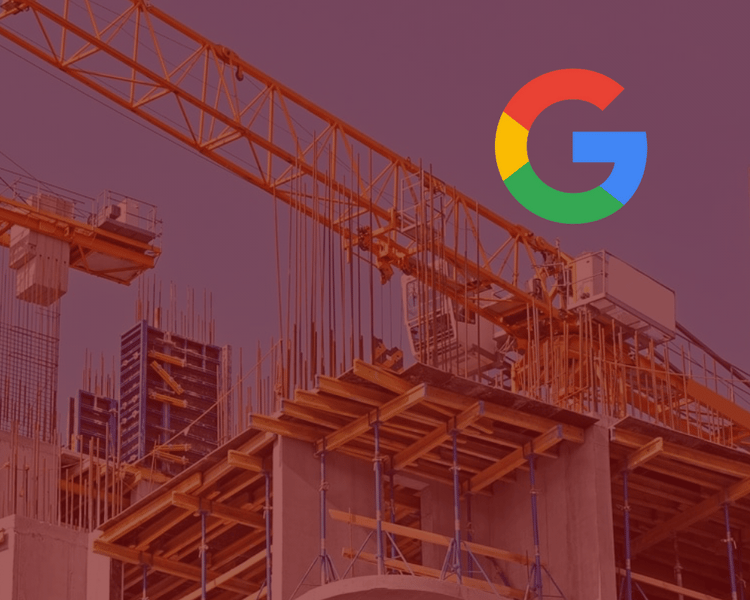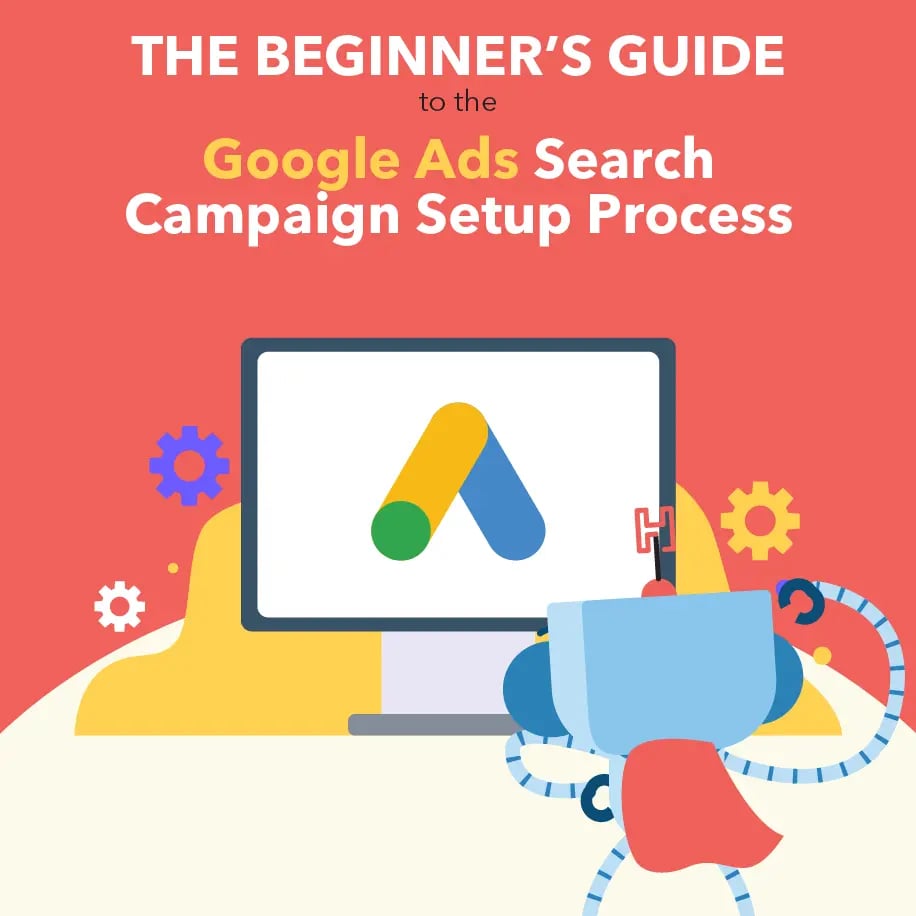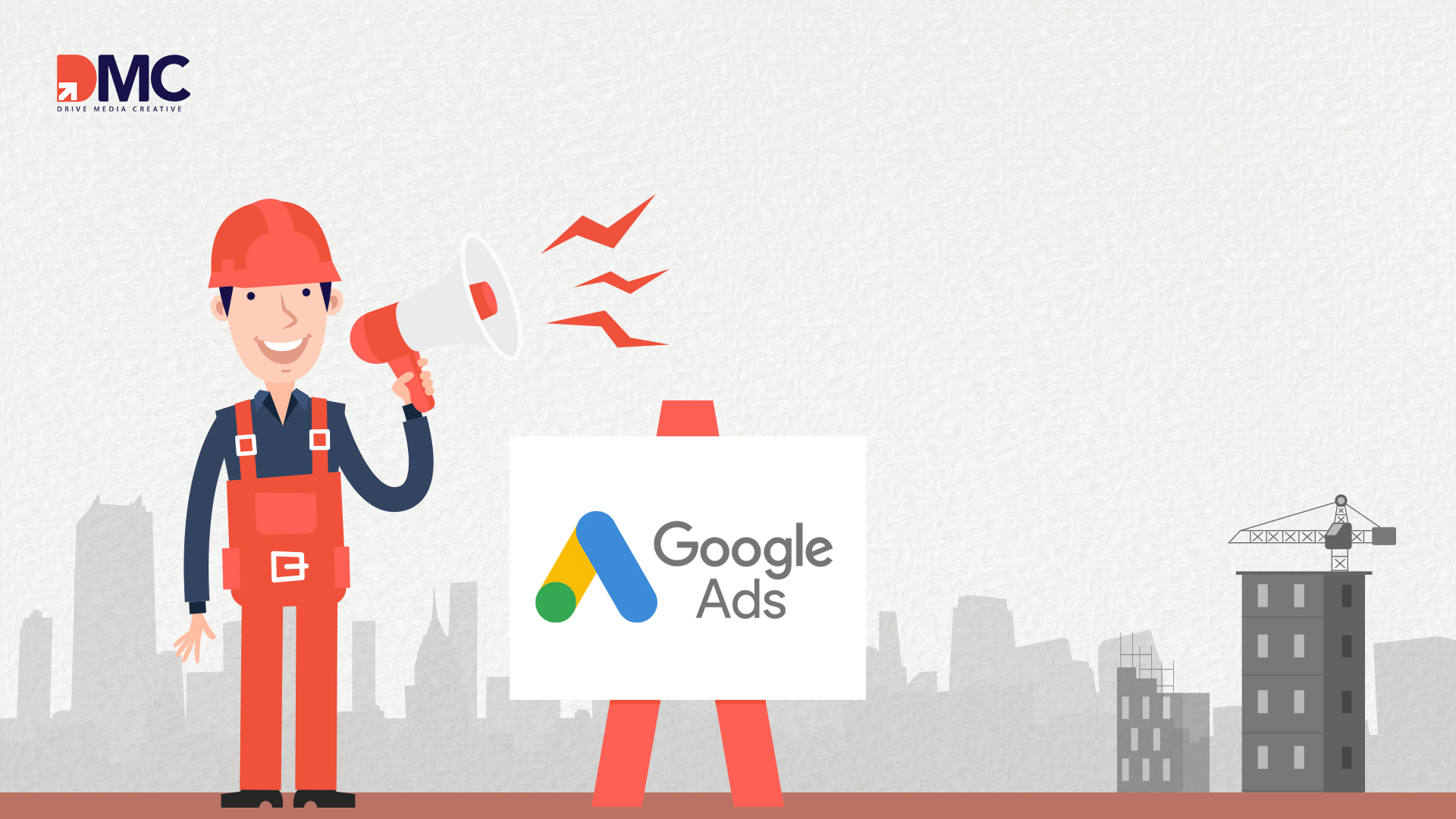Table of Contents
Introduction
Understanding Google Ads
Why Google Ads Work
Step-by-Step Campaign Set up
How to Optimize your ads
Expected Results
Final Thoughts
How to Start Google Ads & Gain Leads For Your Construction Company
In today’s competitive construction market, having a strong online presence isn’t just helpful—it’s essential. Whether you’re a concrete contractor, roofer, excavator, or general builder, your potential clients are searching for your services on Google right now. The question is: will they find you—or your competitor?
That’s where Google Ads for construction businesses comes in.
Google Ads (formerly Google AdWords) allows you to appear at the top of search results for high-intent keywords like “concrete contractor near me”, “residential excavation services”, or “commercial roofing company.” With the right strategy, you can generate a steady stream of qualified leads, even if your website isn’t ranking organically yet.
In this beginner-friendly guide, we’ll break down exactly how contractors can use Google Ads to grow their businesses—without wasting money or getting overwhelmed by technical jargon. Whether you’re new to digital marketing or looking to improve your current campaigns, this article will show you everything you need to know to succeed.
Understanding How Google Ads Work
Before you can use Google Ads effectively for your construction business, it's crucial to understand how the platform actually works. This section will break it down in plain English so you can make smart decisions—even if you’ve never touched Google Ads before.
What Are Google Ads?
Google Ads is an online advertising platform that allows you to place your business at the top of Google search results when someone types in specific keywords. Instead of waiting months for SEO to kick in, Google Ads lets you show up immediately to people who are already searching for what you offer.
For example, if someone types in “driveway concrete company in Vancouver”, and you’ve set up an ad for that keyword, your ad could appear at the very top—above even the organic results.
💡 How the Google Ads Auction Works
Every time someone types a search into Google, there’s an instant, behind-the-scenes auction that determines which ads will show—and in what order. Here's what determines your ranking:
Your Bid: How much you're willing to pay per click.
Quality Score: How relevant your ad, keywords, and landing page are to the search.
Expected CTR (Click-Through Rate): Google rewards ads that are more likely to get clicks.
Ad Relevance & Landing Page Experience: If your ad matches the searcher's intent and your website provides a good user experience, you’re more likely to win the auction—sometimes even with a lower bid.
The better your quality score, the less you’ll have to pay for top placements. That’s why relevance matters just as much as budget.
📊 Search Ads vs. Display Ads vs. Local Services Ads
1. Search Ads (Text-Based Ads)
These are the ads you see at the top of Google search results. Perfect for service-based construction businesses targeting keywords like “foundation repair near me” or “excavation company Langley.”
Best for: High-intent leads ready to hire.
2. Display Ads (Image/Banner Ads)
These appear across Google's partner websites and apps. While they’re less targeted, they’re great for brand awareness or retargeting people who already visited your site.
Best for: Retargeting and visibility.
3. Local Services Ads (LSAs)
These are the special listings that show your business name, reviews, and phone number at the top of the page. LSAs are pay-per-lead (not per click), and they’re available only in select regions and categories.
Best for: Local contractors with lots of 5-star reviews and a physical location.
Now that you understand how Google Ads works and which types are best suited for construction businesses, let’s move on to why this platform is such a perfect fit for contractors in 2025.
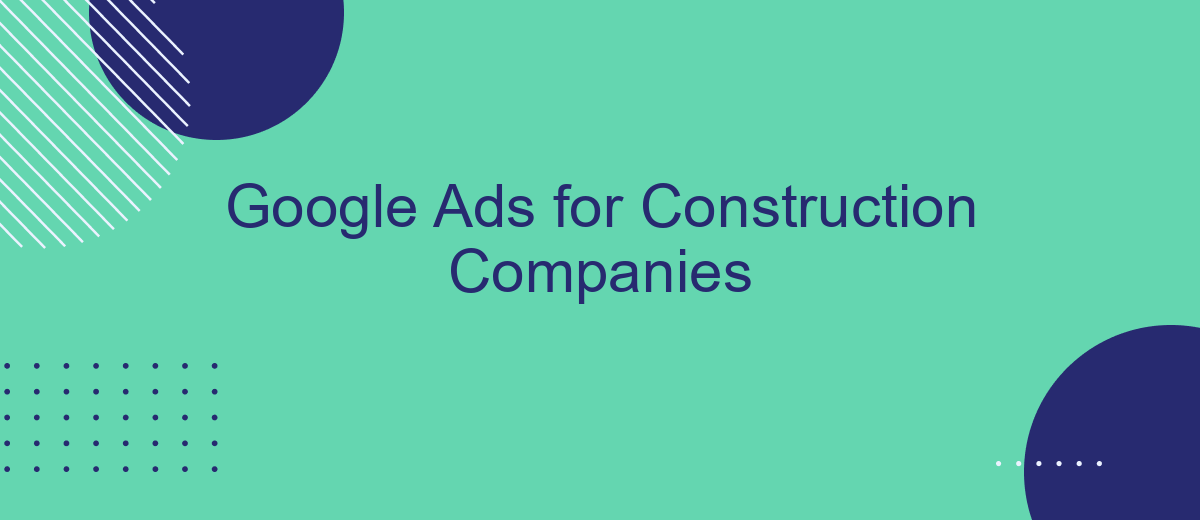

Why Google Ads Works So Well for Construction Businesses
For construction businesses, getting consistent, high-quality leads is one of the toughest (and most expensive) parts of growing. That’s why Google Ads is such a powerful tool—because it puts your business in front of people who are already searching for what you offer.
Here’s why Google Ads is a no-brainer for contractors:
1. You’re Reaching People at the Perfect Moment
Google Ads puts your business in front of people at the exact moment they’re ready to hire. This isn’t like social media where you’re hoping to catch someone’s attention. These are homeowners or project managers who just typed in:
“concrete driveway installation quote”
“foundation repair company near me”
“roofing contractor for new home build”
With Google Ads, your business appears when they’re actively looking—making them way more likely to call, click, or request a quote.
2. You Only Pay When Someone Clicks
Unlike traditional advertising (radio, flyers, signs) where you pay whether or not it works, Google Ads uses a Pay-Per-Click (PPC) model. That means you only spend money when someone actually clicks your ad and visits your website.
If your ad is running but no one clicks? You don’t get charged. This makes it extremely cost-effective—especially for local construction companies with limited budgets.
3. You Can Laser-Target by Location
One of the biggest wins for contractors: you don’t need to waste money showing your ad outside your service area. With Google Ads, you can:
Target specific cities, towns, or even postal codes
Exclude regions you don’t serve
Set radius targeting (e.g., 25km around your office)
This means your budget is used efficiently to attract people who are actually in your service area and ready to hire.
4. You Get Instant, Measurable Results
With Google Ads, you’ll know exactly what’s working:
How many people saw your ad
How many clicked
What keywords drove those clicks
How much each lead cost you
Even better, you can track phone calls, form submissions, and quote requests, so you’ll always know what your return on investment (ROI) looks like.
5. It Works Even If Your SEO Is Weak
If your website doesn’t rank on the first page of Google organically (yet), don’t worry—Google Ads lets you leapfrog your competition and show up instantly. It’s like cutting the line.
This is especially useful for:
New construction businesses
Contractors in highly competitive markets
Companies who’ve ignored SEO until now
Up next, we’ll dive into how to set up your first campaign step-by-step—including which settings to use, what keywords to target, and how to avoid wasting money.
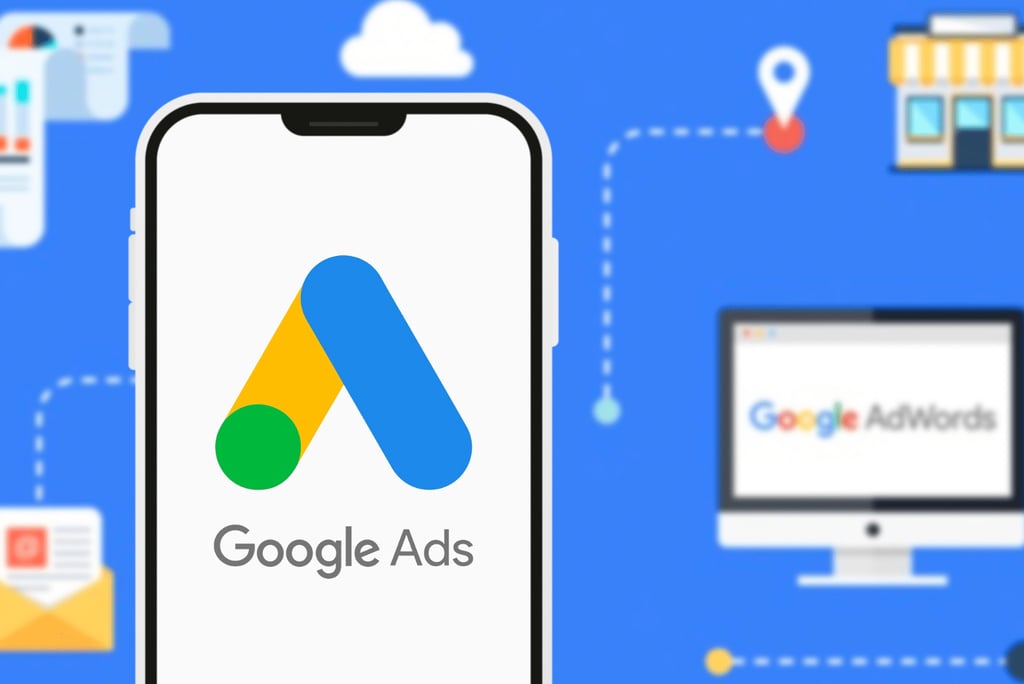

How to Set Up Your First Google Ads Campaign (Step-by-Step)
Running a successful Google Ads campaign starts with a solid setup. Many contractors waste money because they skip over the important details—like targeting, keyword matching, or ad copy. Follow this step-by-step breakdown to make sure your campaign is built for results from day one.
🎯 Step 1: Define Your Goals
Start by identifying what you want from your campaign. Your goals will influence every other decision you make.
Want phone calls? Set up Call-Only Ads.
Want quote requests? Build a landing page with a simple form.
Want more website traffic? Focus on your homepage or service pages.
Clear goals = better targeting + better ROI.
🔍 Step 2: Choose the Right Campaign Type
For most construction businesses, the best choice is:
Search Campaigns – These show your ads in Google search results.
If you're doing follow-up marketing later on, you can explore:
Display Campaigns – Great for retargeting people who visited your website.
Local Services Ads – Pay-per-lead ads that show above search results (available in select areas).
But to start, stick with Search campaigns—they offer the best intent-to-buy traffic.
📍 Step 3: Set Location Targeting
Make sure your ads only show in the areas you serve. Inside Google Ads:
Choose cities, towns, or postal codes you want to target
Exclude locations you don’t want to get leads from
Use radius targeting (e.g., 30 km around Vancouver)
This prevents wasted clicks from outside your service area.
💬 Step 4: Choose High-Intent Keywords
Not all keywords are created equal. You want buyer-ready keywords, like:
“concrete driveway contractor [city name]”
“foundation repair company near me”
“excavation services [city]”
“stamped concrete patio install”
Avoid vague terms like “concrete” or “construction” on their own—they’ll burn your budget fast.
Use tools like Google Keyword Planner, Ubersuggest, or SpyFu to find the highest intent, lowest competition phrases in your market. Also: start with phrase match or exact match keywords to avoid irrelevant clicks.
✍️ Step 5: Write Compelling Ad Copy
Your ad needs to answer 2 questions fast:
Why should someone click you instead of the others?
What can you do for them?
Here’s a simple formula:
Headline 1: Concrete Driveways in Vancouver
Headline 2: Free Estimates – Fast Turnaround
Headline 3: Licensed & Insured | 5-Star Rated
Description: Trusted concrete contractors serving Vancouver & the Lower Mainland. Free quotes, high-quality work, and no surprise pricing. Book a site visit today!
✅ Include your location
✅ Add value props (free quote, insured, fast turnaround)
✅ Use real differentiators (locally owned, 20+ years, eco-friendly, etc.)
💵 Step 6: Set Your Budget & Bids
You don’t need $1,000/day to make this work. Many contractors start with $15–$30/day and grow from there.
Use manual bidding with enhanced CPC (for control with optimization)
Start small, then scale once you’ve dialed in your best keywords and ads
📊 Step 7: Set Up Conversion Tracking
This step is critical. You need to know where your leads come from.
Track:
Form submissions
Phone calls
Clicks on quote buttons
Page visits (like “Thank You” pages after forms)
Use Google Tag Manager or install the Google Ads tag directly on your site.
Next, we’ll walk through how to optimize your campaign over time—so you get more leads for less money.
How to Optimize Your Google Ads Campaign for Better Results
Once your Google Ads campaign is up and running, the real work begins. Optimization is where you turn an average campaign into a lead-generating machine. Here’s how to improve your results over time without wasting your budget.
A/B Test Your Ads Regularly
Never settle on just one ad. Test variations of your:
Headlines (e.g., “Concrete Driveways Vancouver” vs. “Driveway Experts in Vancouver”)
Descriptions (e.g., “Free Estimates” vs. “Affordable, Upfront Pricing”)
Display URLs (e.g., /concrete-driveways vs. /services)
Google will automatically rotate your ads and favor the ones that perform better. A/B testing keeps your click-through rate (CTR) improving over time.
Pro tip: If CTR drops below 3%, it’s time to test new copy.
Add Negative Keywords
One of the fastest ways to improve performance is by telling Google what you don’t want to show up for.
Examples of negative keywords:
“DIY”
“free”
“jobs”
“cement art”
“how to mix concrete”
Add these to your negative keyword list to avoid paying for bad clicks from people who are never going to hire you.
Use Ad Extensions to Increase Visibility
Ad extensions take up more space on the search results page—and that means more clicks. Use these:
Call extension: Adds your phone number to the ad (clickable on mobile)
Sitelink extension: Links to service pages like “Stamped Concrete” or “Excavation”
Location extension: Shows your address if you have a physical location
Callout extension: Add key selling points like “Licensed & Insured” or “Free Estimates”
Extensions boost CTR and make your ad more trustworthy at a glance.
Monitor Key Metrics (Weekly)
Every week, review your:
CTR (Click-through rate): Is your ad copy attracting attention?
CPC (Cost-per-click): Are you bidding efficiently?
Conversions: Are you getting leads or just traffic?
Search terms report: Are you showing for the right keywords?
Use this data to spot trends and double down on what’s working. Cut what isn’t.
Improve Landing Pages
You can have the best ads in the world—but if your website sucks, your leads won’t convert. Optimize your landing page:
Keep it simple (headline, benefits, contact form)
Add trust (testimonials, reviews, photos of your team/work)
Make it mobile-friendly (60–70% of traffic will be from phones)
Have one clear call-to-action (“Get a Free Quote”)
A high-converting landing page can double or triple your ROI overnight.
Use Smart Campaign Tools (with Caution)
Google will push you to use automation features like:
Smart campaigns
Maximize conversions
Broad match keywords
These can work if your account is already well-optimized, but if you're just starting out, manual control is better. Only switch to automation once you have solid conversion data.
Retarget Website Visitors
Ever had someone visit your site and disappear?
With remarketing, you can show ads to people who:
Visited your site but didn’t contact you
Clicked an ad but didn’t convert
Looked at a specific service (e.g., “concrete patios”)
Display and YouTube ads are great for this—and the clicks are cheaper.
Final Tips for Success
Be patient: Google Ads often takes 30+ days to dial in
Keep testing and refining: your first version won’t be your best
Don’t “set it and forget it”: weekly tweaks = long-term profits
Track leads, not just traffic: make sure the calls and forms are coming from ads
Consider hiring help: running profitable Google Ads takes time and skill—if you're too busy on-site, a contractor-focused marketing agency can do the heavy lifting
What You Can Expect From Google Ads in the Construction Industry
If you’re investing time and money into Google Ads, it’s only natural to ask:
“What kind of results should I expect?”
“What’s a good CTR for construction businesses?”
“How many leads will I get?”
“Is the cost per click going to break the bank?”
This section breaks down what a typical contractor or construction company can expect based on industry benchmarks and real-world data.
What’s a Good CTR for Construction Businesses?
CTR (Click-Through Rate) is the percentage of people who click your ad after seeing it. It tells you how compelling your ad copy is and how relevant your targeting is.
Here’s what’s considered a good CTR in construction:
Ad Platform Average CTR Great CTR
Search Ads 2.0% – 4.5% 5%+
Display Ads 0.5% – 1% 1.5%+
Average CPC (Cost Per Click) in the Construction Industry
Construction-related keywords tend to be more expensive than average, but the value of each lead makes up for it. The actual CPC depends on your region and service type.
Typical CPC Ranges:
Service Type Average CPC
General Contracting. $3 – $8
Concrete Services. $4 – $9
Roofing $5 – $12
Renovations. $6 – $15+
What’s a Good Conversion Rate?
Conversion rate = percentage of ad clicks that turn into leads (calls, quote requests, form submissions).
Industry average for construction? 8%–15%
If your landing page is optimized, you could see up to 20% conversion rates. That means 1 out of every 5 clicks turns into a lead.
What ROI Can You Expect?
Let’s do some simple math to give you a rough idea:
You spend $1,000/month on Google Ads
Average CPC is $5 → 200 clicks
Conversion rate is 10% → 20 leads
Close rate is 30% → 6 new jobs
Average job value = $4,000
That’s $24,000 in revenue for $1,000 in ad spend.
Even if your close rate is lower, the potential ROI is still massive if you’re targeting the right services and areas.
How Long Does It Take to See Results?
Most campaigns see real traction within 30–60 days—especially if you’re optimizing weekly. That said, Google’s algorithm improves your performance over time, so the best results often come after 90+ days of consistent testing and refinement.
Final Thoughts on Performance Expectations
The beauty of Google Ads is that it's scalable and predictable—if you do it right.
Start small, test smart
Track everything (calls, forms, revenue)
Optimize weekly
Scale what works
If you do all of the above, you’ll consistently get qualified leads that turn into paying clients, without chasing jobs or relying on word-of-mouth alone.
Final Overview of Google Ads for Construction Companies
If you’re a contractor or construction business owner looking to consistently bring in leads, build your brand locally, and grow your revenue—Google Ads is one of the most effective tools at your disposal.
It gives you the ability to:
Show up at the exact moment someone searches for your service
Outrank competitors (even the big guys) with the right strategy
Control your budget and scale only when you’re ready
Measure everything with real data, from clicks to phone calls
In a world where word-of-mouth and flyers just aren’t enough anymore, Google Ads bridges the gap between old-school craftsmanship and modern digital marketing. It doesn’t matter if you’re offering concrete driveways, full-home renovations, roofing, or excavation—people are searching for you on Google right now. The only question is: Will they find you—or your competitor?
By mastering the basics we’ve laid out in this guide—from keyword research and ad copy to landing pages and weekly optimizations—you’ll be well on your way to running high-converting, cost-effective campaigns that actually grow your construction business.
And if you don’t have time to manage it yourself?
That’s where working with a construction-focused marketing team makes all the difference. We’ll help you:
Set up your campaigns the right way from Day 1
Track every lead so you know exactly what’s working
Optimize your ad spend to avoid wasting a single dollar
Let’s get your phone ringing and your calendar full.
Want help launching your Google Ads campaign the right way?
📞 Book a free strategy call with our team and let’s grow your business.
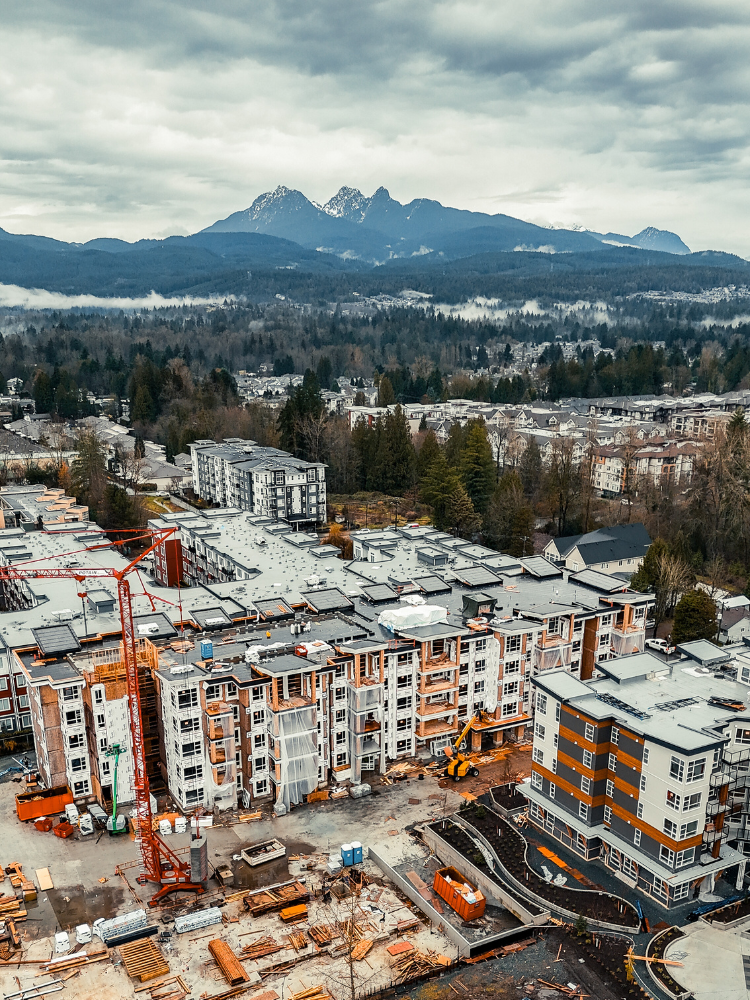

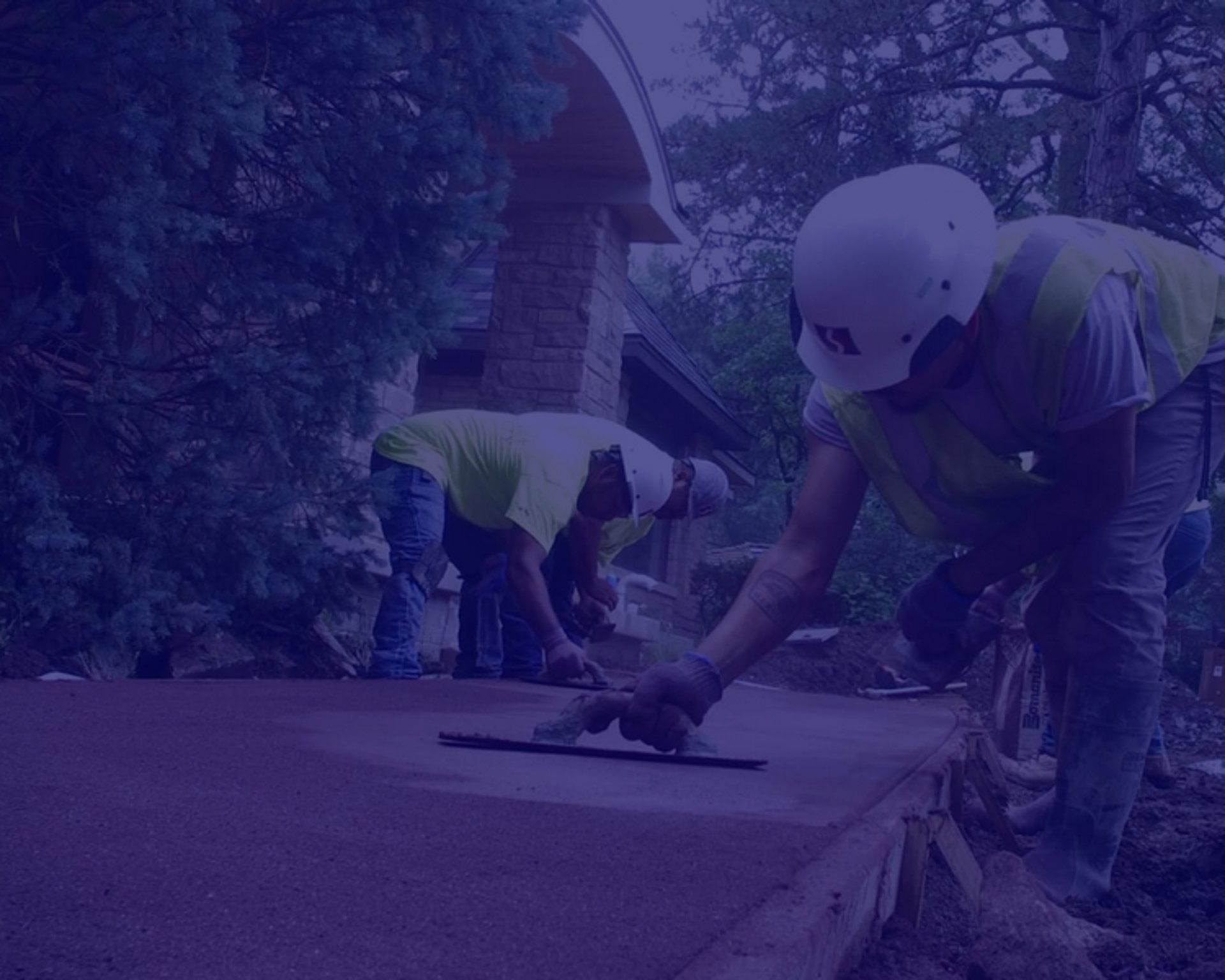
READY TO GROW YOUR CONSTRUCTION COMPANY?
Business Info
Phone: 604-626-3100
Photography: 778-887-2296
Email: info@debutmarketing.ca
Location: Vancouver, BC, Canada
Debut Marketing Inc © 2025. All rights reserved | Vancouver Marketing Agency Terms of Use / Privacy Policy


About Us
Services
At Debut we are focused on helping our local contractors, developers and real estate businesses to gain more clients through elite website design & marketing services that are custom made for YOU.
Industries
Concrete Marketing
Realtor Marketing
Excavation Marketing
Construction Marketing

